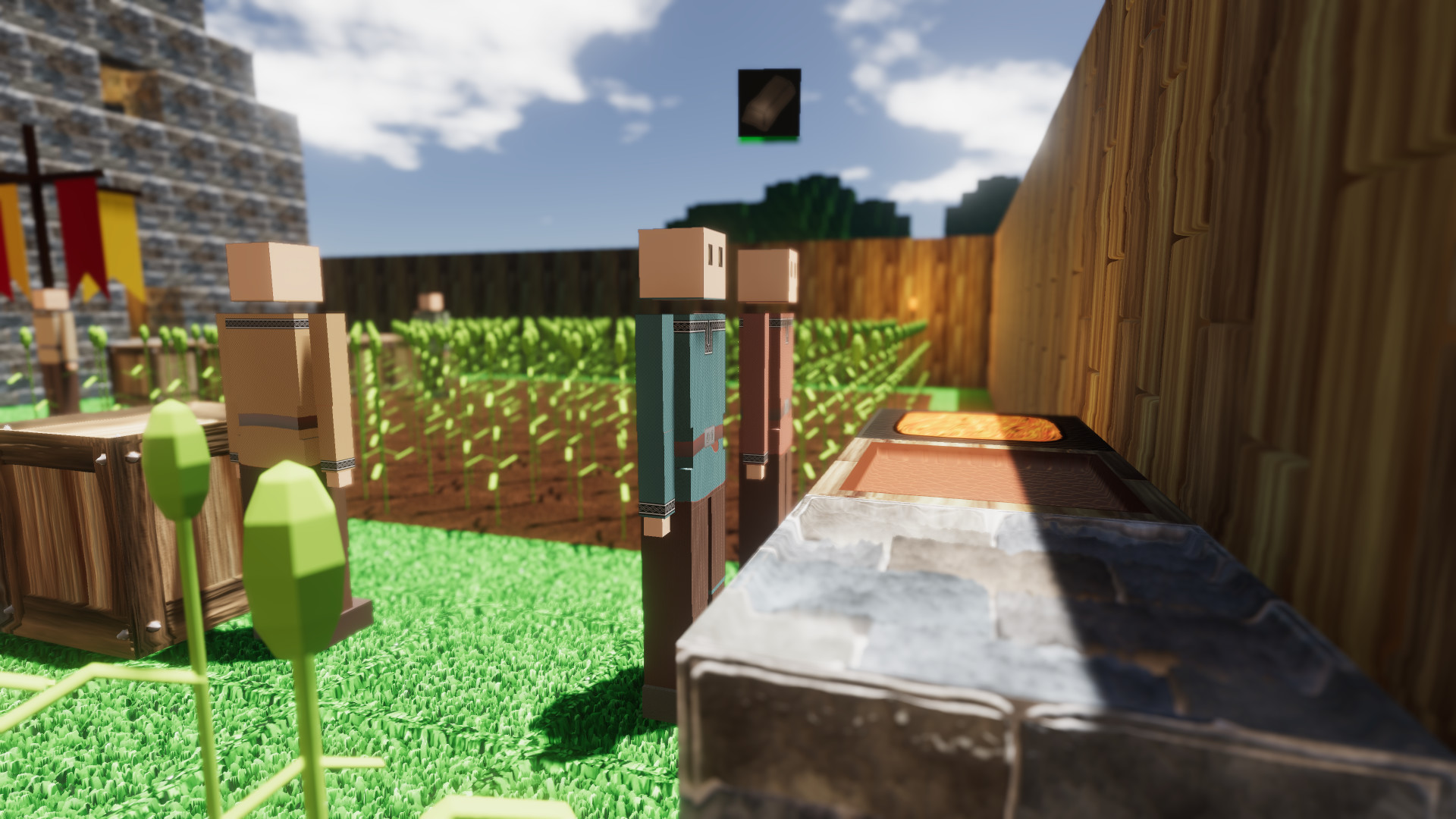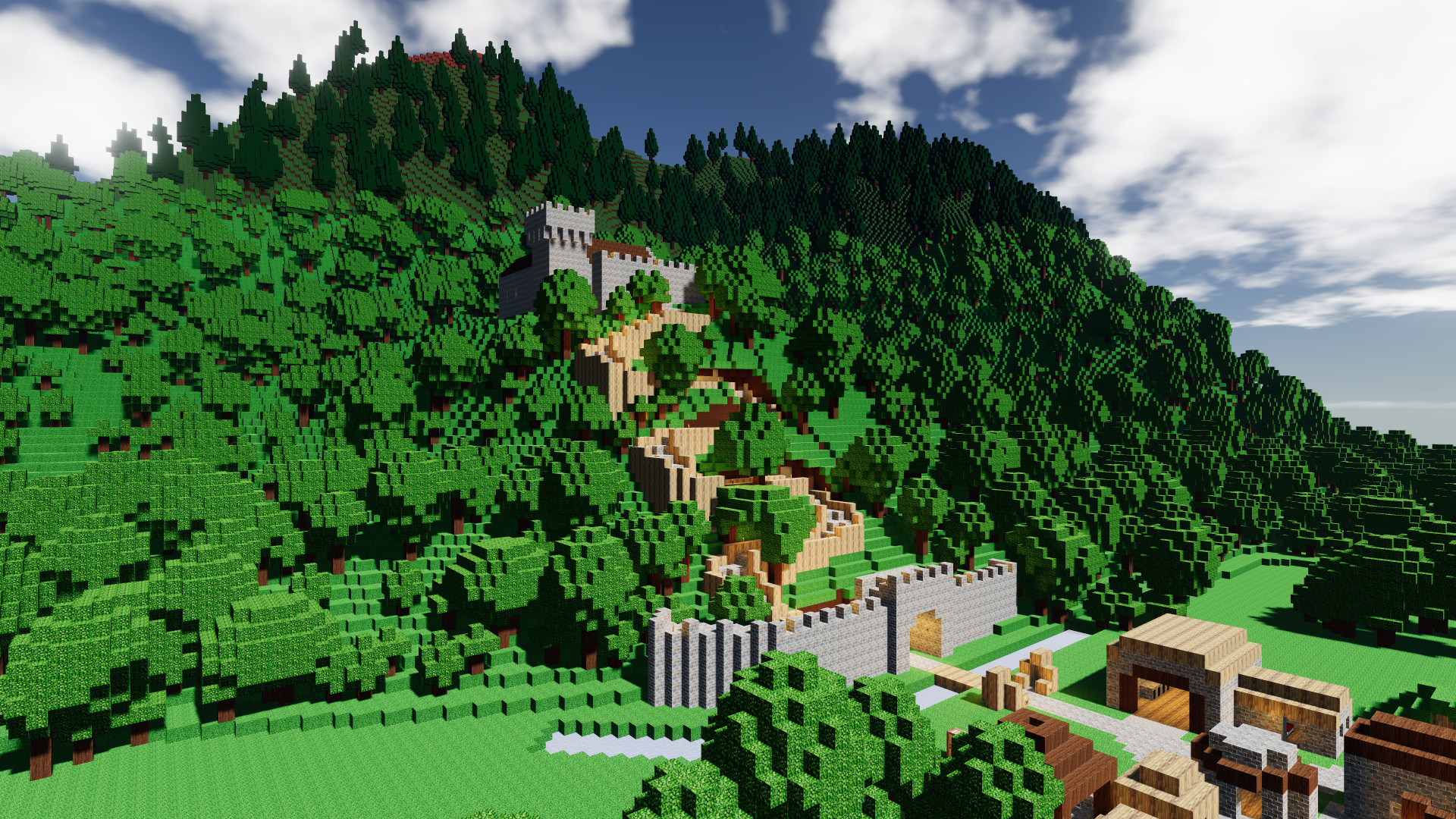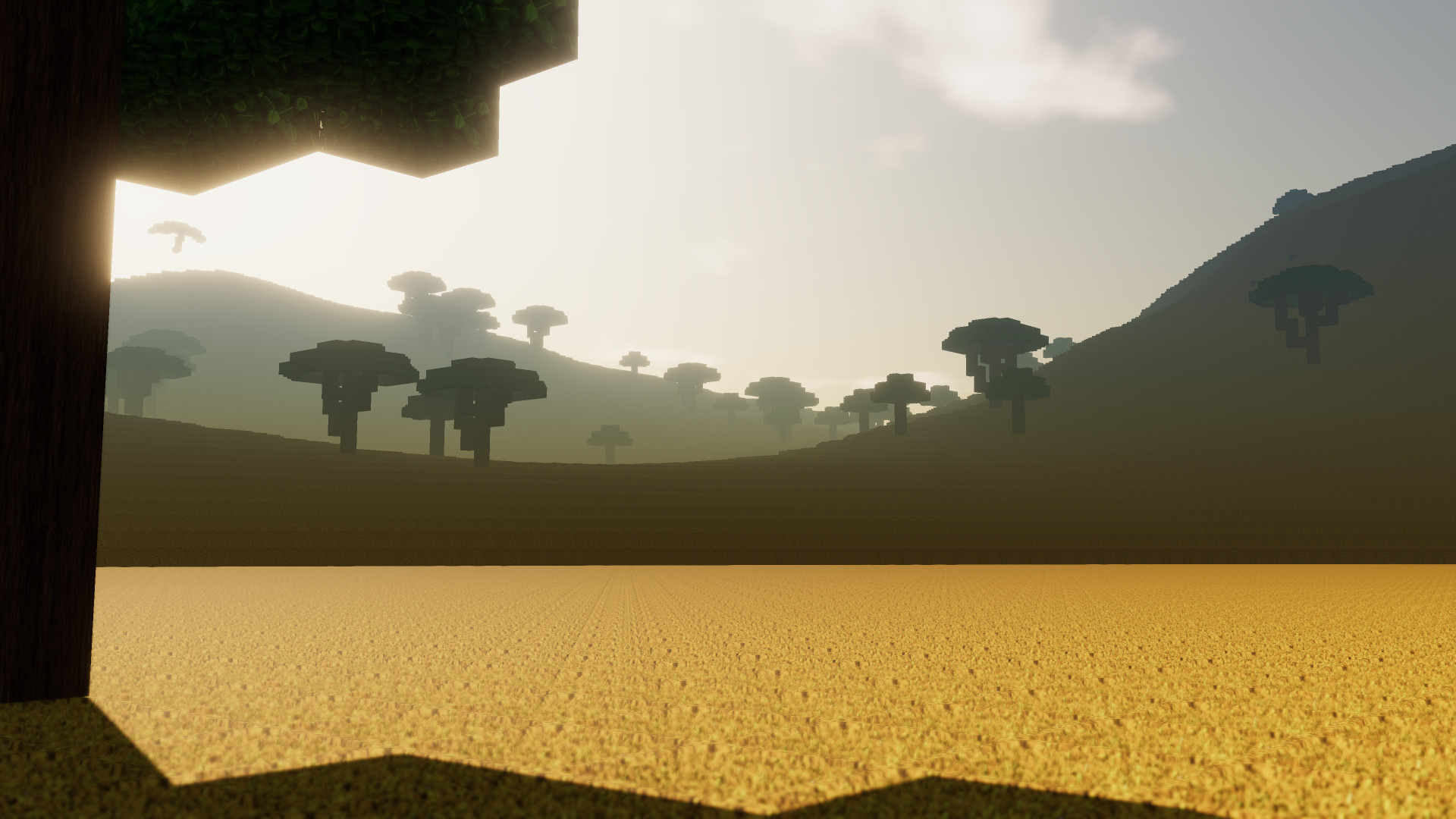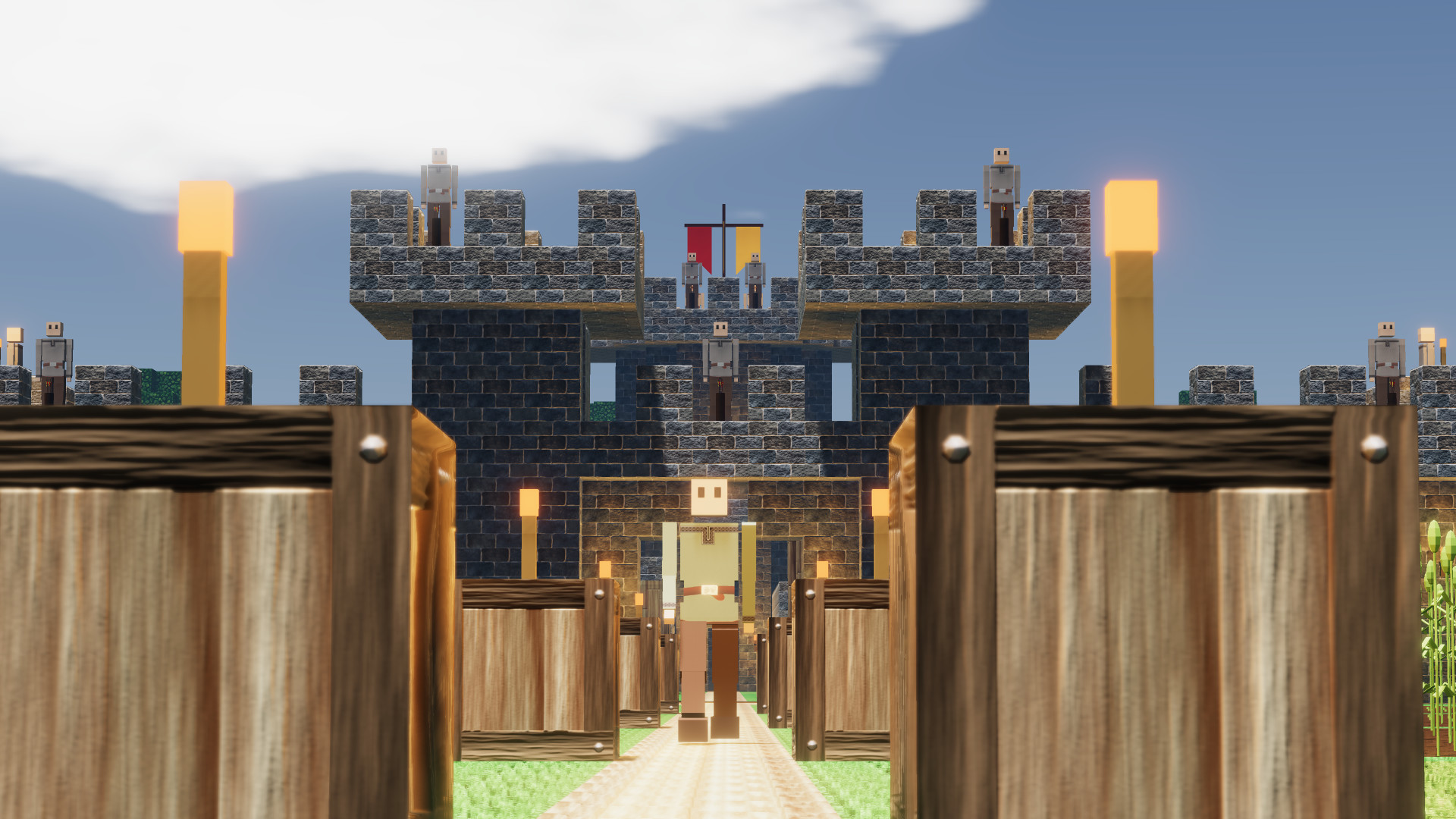- Multiplayer support: play with friends and strangers!
- Advanced pathfinding: colonists and zombies will find their way in the world you've build. They will dynamically navigate stairs, bridges and tunnels.
- Explore a world with realistically placed biomes. A giant jungle in the center of the world, surrounded by savannas, deserts and temperate biomes. Two polar regions in the far north and south.
- Support for textures and language packs created by players
- Dynamic lighting and eye adaptation
- Voice your suggestions and be part of the development of Colony Survival!
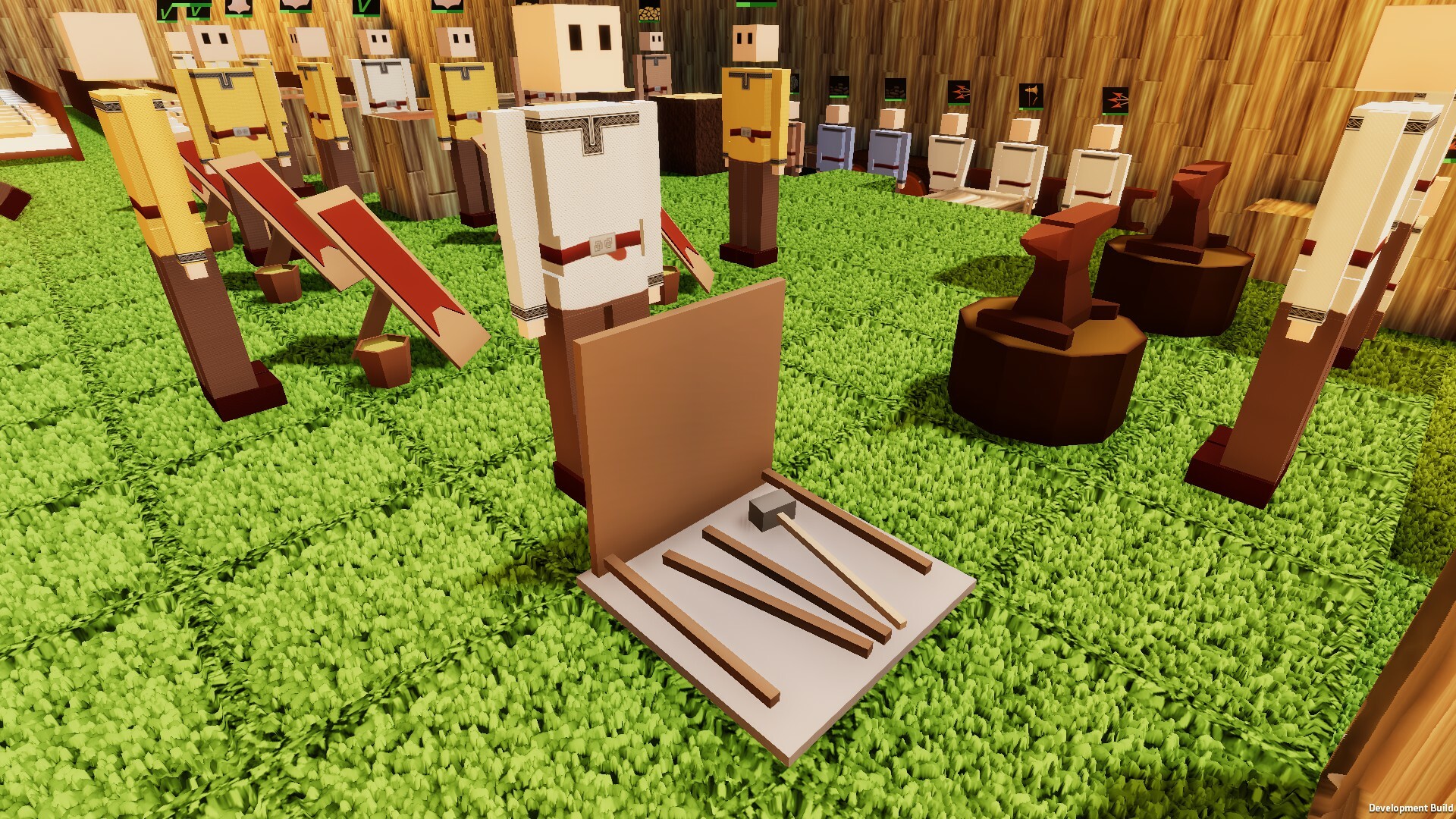
The jobblock maker in the internal 0.9.0 dev branch. We're considering to allow an increased heigth for jobblocks.
Progress in the past week has been fairly steady and predictable. The refactoring of NPC movement has been completed, and caltrop traps actually slow down enemies now. The final items without icons or meshes have received the attention they needed. Instead of boring you with all the technical details, wed like to bore you with philosophical details!
Well start with a story about Formula 1. Zun, Vobbert and I watch most races, certainly now that a Dutchman is leading the championship. When I was young, in the Schumacher-era, I thought Formula 1 was a competition between the fastest cars we could build.
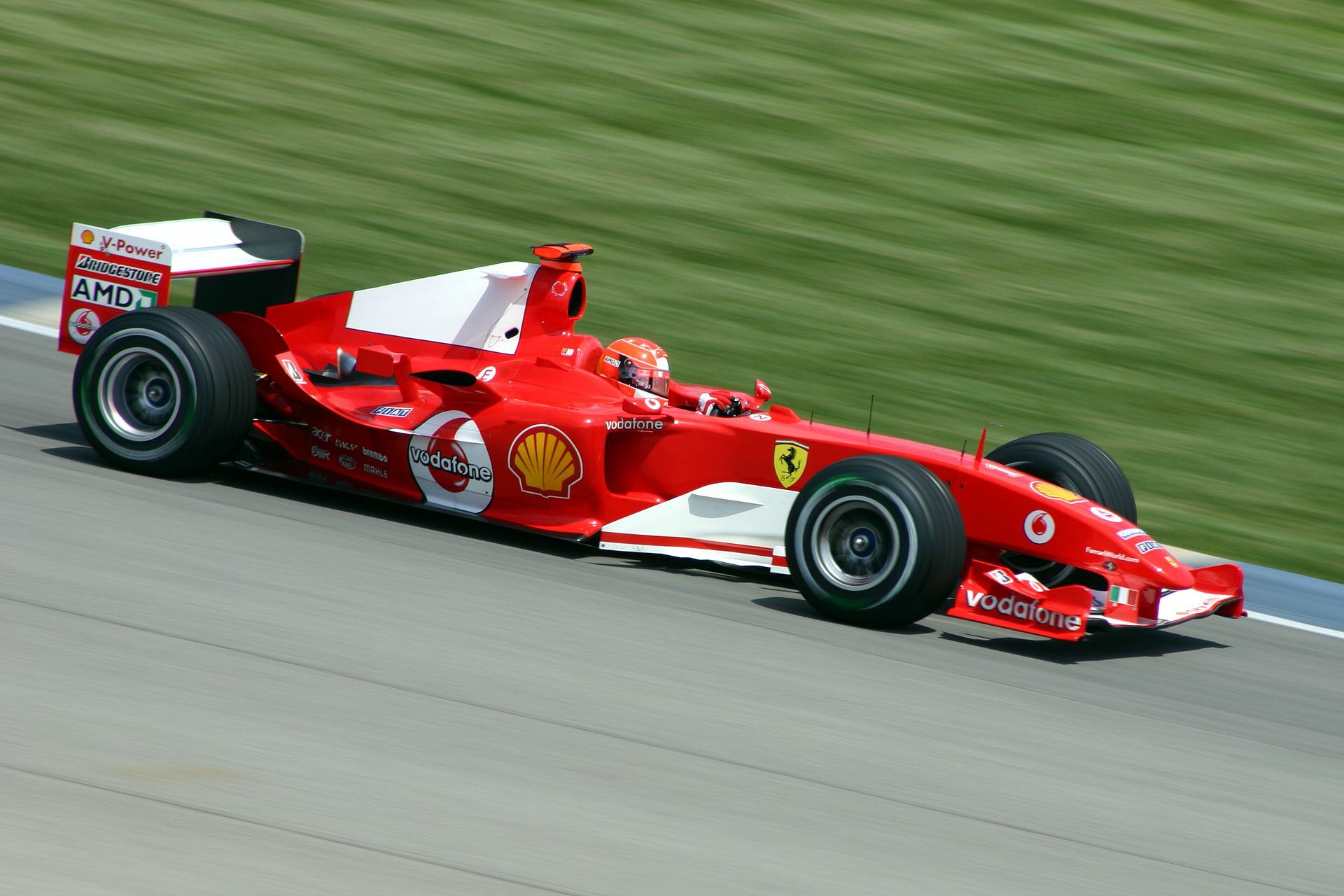
Michael Schumacher at the 2004 United States Grand Prix, all F1 images from Wikipedia
When I grew older, I learned F1 has an enormous rulebook. There are all kinds of technical specifications the carmakers have to follow. The car must fit very specific dimensions, it has to be a certain weight, it has to use a specific kind of engine, they cant exceed a certain fuel use, the aerodynamics are limited, assists like traction control are outlawed.
This means Formula 1 cars arent the fastest cars in the world. Theyre not optimized for speed, nor are they optimized for beating the competition. Theyre limited by all kinds of constraints, and could quite easily be much faster without them.
When I learned about that, I was quite disappointed. Formula 1 is exciting because the cars are so extremely fast and the technology is so advanced! Why would you limit that? Architects, musicians and writers dont deliberately reduce the quality of their output by 30% because of arbitrary rules. Why does F1?!

A Mercedez-Benz W196, participated in the 1954 and 1955 F1 seasons
Nowadays, the F1 rulebook might actually be one of the things I appreciate the most about the sport. I wish the real world was regulated that well! It turns out that although a competition about designing and driving the fastest possible cars does result in exciting competitions to watch to a degree, the correlation is far from 100%. Back in the 1950s, the rulebook might have been quite thin, resulting in a competition that largely did concern the fastest cars they could build.
But as technology advanced, speed and cost went up. This has all kinds of detrimental effects if you want a competition that is actually fun to watch. You dont want crashes to regularly severely harm or kill drivers. You want to watch humans drive, not all kinds of onboard electronics. You dont want one super-wealthy team to make a car that extremely outperforms all others which just wins championship after championship without competition.

A BRM P133 in 1968
The difference between #1 and #2 in a F1 race is regularly only a fraction of a second. Being able to lose 100 grams of weight can thus make or break your race, because the lower weight will give you increased speed. Without strict rules, this would mean starved drivers and no safety features.
The teams are continuously trying to find loopholes in the rules. If they can find a semi-legal way to improve their lap times even a tiny bit, theyll do so. If you follow F1 for a while, youll be confronted with all kinds of discussions about flexible wings, novel steering methods and other weird rule-bending technology. At a certain moment McLaren introduced the F-Duct system, where the driver had to close off holes in the body of the car to change the aerodynamics - an unexpected way to circumvent the ban on movable aerodynamic devices.
To summarize:
- The Formula 1 organization wants to organize safe, exciting and relatively affordable races
- The teams and drivers are focused on winning those races, and theyre constantly in a very intense competition with others who try to achieve the same thing
- These goals are quite at odds with each other and this results in a continuous cat-and-mouse game between the organization and the teams, which throughout the decades has produced a rather massive rulebook. This is quite inevitable.

Fictional Red Bull X1 prototype: a racing car unconstrained by rules and regulations
This cat-and-mouse game can be observed in a lot of places. Big companies can profit by disregarding the environment, the government implements rules to prevent this, companies find a loophole, etcetera.
Here in the Netherlands, the government tried to reduce COVID infections by closing down pubs and restaurants. To circumvent these bans, people just started socializing with others at home. To prevent this, the government implemented a curfew: you werent allowed to walk the streets after 9PM. This problem was also solved quickly: many just started hosting sleepovers.
Were noticing the same pattern in Colony Survival over and over again. We want to generate interesting challenges for players. A pressure to improve their defenses, or their food production, or their mining operation. Players want to overcome these challenges, but that means that we as developers have pretty much completely opposed incentives, compared to players. Players often want powerful melee guards that can stab to death monsters with spears - we dont want to add strong guards that dont consume ammo, because that would make so many other guards useless.
Many players, myself included, build colonies with bed-seas. Rooms fully covered with beds, from wall to wall. Weve regularly been asked to introduce measures to prevent or at least disincentivize this. But how do we do that in a way thats intuitive for players, that doesnt result in an infinite cat-and-mouse game, and that is not too costly too program? We could demand that players leave one block of free space between beds, but that would result in similar bed warehouses, just with a slightly less optimal pattern. Theres no easy way to add constraints that would result in realistic, cosy, good-looking bedrooms.
Another example. Its currently quite easy to guide the monsters to a certain entrance - often a big maze. Players mention they would like to see monsters that can break or scale your walls. We do see the appeal, but widely distributing such an ability would quickly lead to a new dominant strategy: just place guards along your entire wall, because you need to be able to defend from all angles. That seems more boring to me than fighting dumb monsters that can be guided along certain paths.
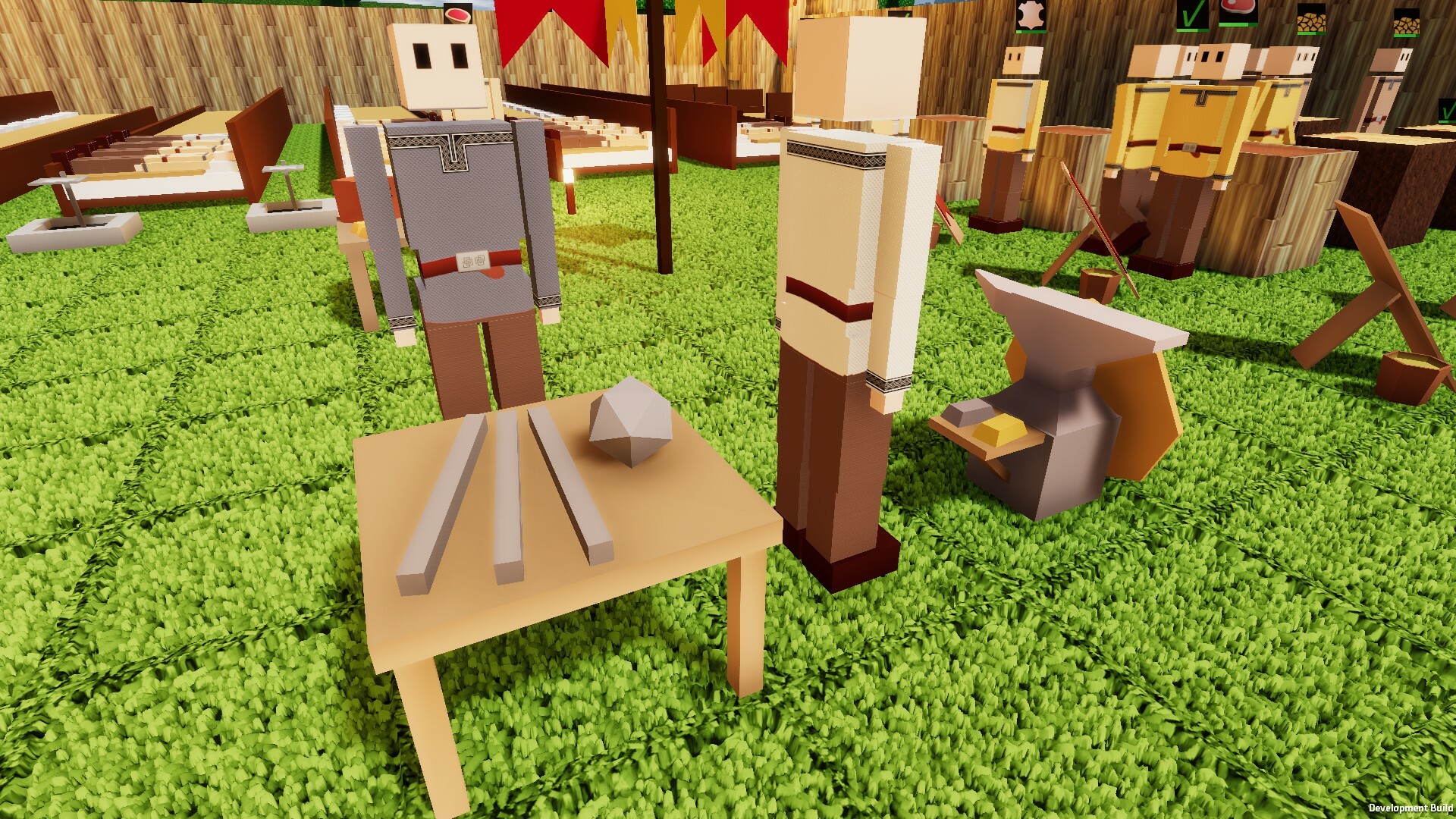
Trapmaker and goldsmith, internal 0.9.0 dev build
Last example: we want to offer better items to advanced colonies. Your reward for expansion and progress in the tech tree should be stronger weapons, better foods, and more valuable luxury items. But if theyre superior in all dimensions, players are pushed to replace the production chains of previous items, and it gets boring and annoying to continuously place and replace production chains. Thats why were striving to keep older items relevant later in the game, to make sure the optimal strategy isnt frustrating. But finding ways to offer continuous improvement without outdating earlier items is very hard!
It feels a bit like were trying to stop water from flowing downhill. Every time we put a barrier in its path, it just finds the easiest way to flow around it. This is a persistent issue that returns again and again, both in Colony Survival and outside of it. Problems seem like they have an easy solution, but each solution has its own side-effects, often convincing us to choose to just tolerate the original problem.
We hope this helps you understand that we do recognize quite a lot of problems and potential solutions, and why we chose not to implement certain apparently easy solutions. Things are complex, puzzle-designers and puzzle-solvers have quite conflicting goals, and wed like to prevent infinite cat-and-mouse games.
We dont want to discourage offering suggestions! Theyve been very valuable in the past, and even if we cant directly implement them, they at least tell us where the bottlenecks are. Please keep doing so. And if the suggestions help deal with the dynamics above, they are extra useful.
If you find these concepts interesting, you might want to read [url=https://www.lesswrong.com/posts/dC7mP5nSwvpL65Qu5/why-the-tails-come-apart]Why the tails come apart
[/url] and Meditations on Moloch . If you're still interested after these walls of texts, jump into #serious on our Discord!
Bedankt voor het lezen :D
Reddit // Twitter // YouTube // Website // Discord
Minimum Setup
- OS: Ubuntu 12.04+. SteamOS+; 64-bit
- Processor: Intel Pentium G620 (2.5 Ghz dual core) or equivalentMemory: 2 GB RAM
- Memory: 2 GB RAM
- Graphics: Intel HD Graphics 5000. 1280x720 display
- Storage: 300 MB available spaceAdditional Notes: Work in progress: new features may raise the bar. optimizations may lower the bar
Recommended Setup
- OS: Ubuntu 12.04+. SteamOS+; 64-bit
- Processor: Intel i5-2300 (2.8 GHz quad core) or equivalentMemory: 4 GB RAM
- Graphics: Nvidia GTX 750 or equivalent. 1920x1080 display. supporting openGL 4.2+Network: Broadband Internet connection
- Storage: 1 GB available spaceAdditional Notes: Work in progress: new features may raise the bar. optimizations may lower the bar
[ 6366 ]
[ 5849 ]
[ 1587 ]
[ 2438 ]
[ 469 ]



